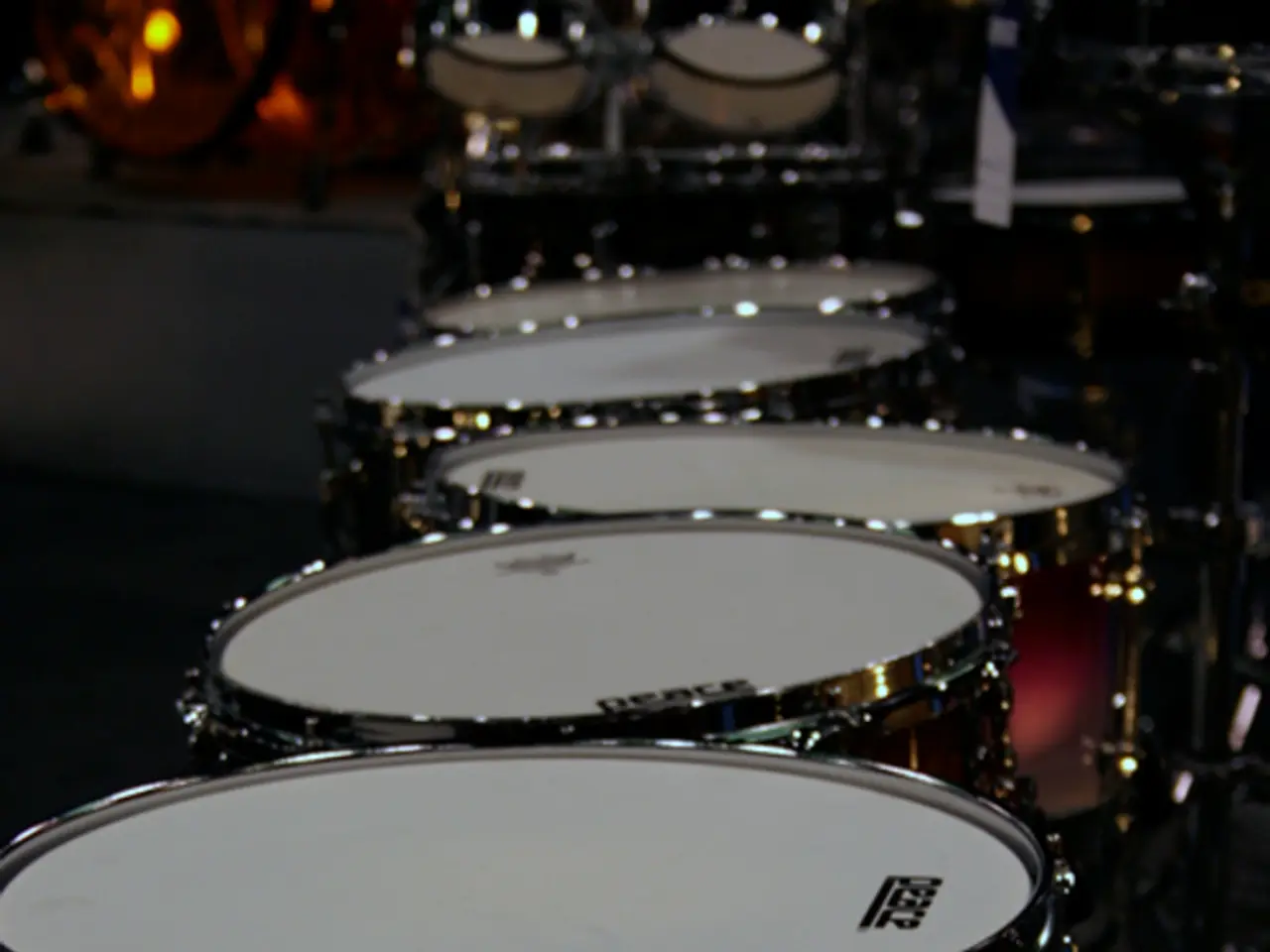Night sweats could potentially indicate an early stage of HIV infection.
Approximately 1.2 million individuals in the United States are living with HIV, a virus that negatively affects the human immune system. During the acute phase of HIV infection, the virus multiplies and spreads to different parts of the body at high levels, leading to a range of symptoms.
One of the most common symptoms experienced during the acute phase is night sweats. These sweats, which are typically occur within the first 2-4 weeks following HIV infection, are a result of the body's immune response to the rapidly replicating virus.
The early stage of HIV, also known as seroconversion illness, is characterized by symptoms similar to the flu, including fever, night sweats, muscle aches, rash, swollen lymph nodes, and sore throat. These symptoms result from the interaction between HIV and the immune system as it tries to fight the virus, leading to systemic inflammation and fever-related sweating episodes during sleep.
Management of night sweats in early HIV infection focuses on early diagnosis and initiation of antiretroviral therapy (ART). Starting effective HIV treatment reduces viral replication, decreases immune activation, and helps resolve symptoms including night sweats by controlling the infection. General measures include keeping the sleeping environment cool, wearing breathable clothing, and avoiding triggers like alcohol or spicy foods that can worsen sweating.
It's important to note that night sweats can also be a sign of secondary infections or other complications related to immune suppression if the disease progresses. Therefore, monitoring for opportunistic infections is crucial.
Without treatment, HIV can progress through different stages and weaken the immune system. The two stages following the acute phase of HIV include chronic HIV infection and AIDS. During chronic HIV infection, the virus continues to multiply in the body, but at lower levels than during the acute phase. Some people with HIV may stay in the chronic phase for 10-15 years.
It's worth mentioning that HIV can transmit through sexual intercourse, contaminated needles, or from parent to child during pregnancy. Without treatment, HIV can progress to AIDS, a late-stage of HIV infection characterized by severe immune system damage.
In conclusion, night sweats in early HIV infection stem from the immune system's response to active viral replication during acute infection. Management involves early HIV treatment to control the virus and supportive care for symptom relief. Regular testing and prompt treatment are key to managing HIV and preventing its progression.
[1] Centers for Disease Control and Prevention. (2020). HIV Basics - Overview of HIV and AIDS. Retrieved from https://www.cdc.gov/hiv/basics/index.html
[2] National Institute of Allergy and Infectious Diseases. (2020). HIV/AIDS. Retrieved from https://www.niaid.nih.gov/diseases-conditions/hivaids
[3] AIDS.gov. (2020). HIV and Night Sweats. Retrieved from https://www.aids.gov/hiv-aids-basics/hiv-basics/hiv-transmission/hiv-fact-sheets/hiv-basics/13501/hiv-and-night-sweats
[4] U.S. Department of Health and Human Services. (2020). Guidelines for the Use of Antiretroviral Agents in Adults and Adolescents Living with HIV. Retrieved from https://aidsinfo.nih.gov/guidelines/html/1/adult-and-adolescent-arv-guidelines/0/
[5] Mayo Clinic. (2020). HIV/AIDS. Retrieved from https://www.mayoclinic.org/diseases-conditions/hivaids/symptoms-causes/syc-20372542
- Night sweats, a symptom of the acute phase of HIV infection, are a result of the body's immune response to the rapidly replicating virus, often occurring within the first 2-4 weeks following HIV infection.
- Managing night sweats in early HIV infection involves early diagnosis and initiation of antiretroviral therapy (ART), which helps to reduce viral replication, decrease immune activation, and alleviate symptoms such as night sweats.
- In addition to medical treatment, general measures like keeping the sleeping environment cool, wearing breathable clothing, and avoiding triggers like alcohol or spicy foods can help manage night sweats.
- Night sweats can potentially be a sign of secondary infections or other complications related to immune suppression if the disease progresses, revealing the importance of monitoring for opportunistic infections.




